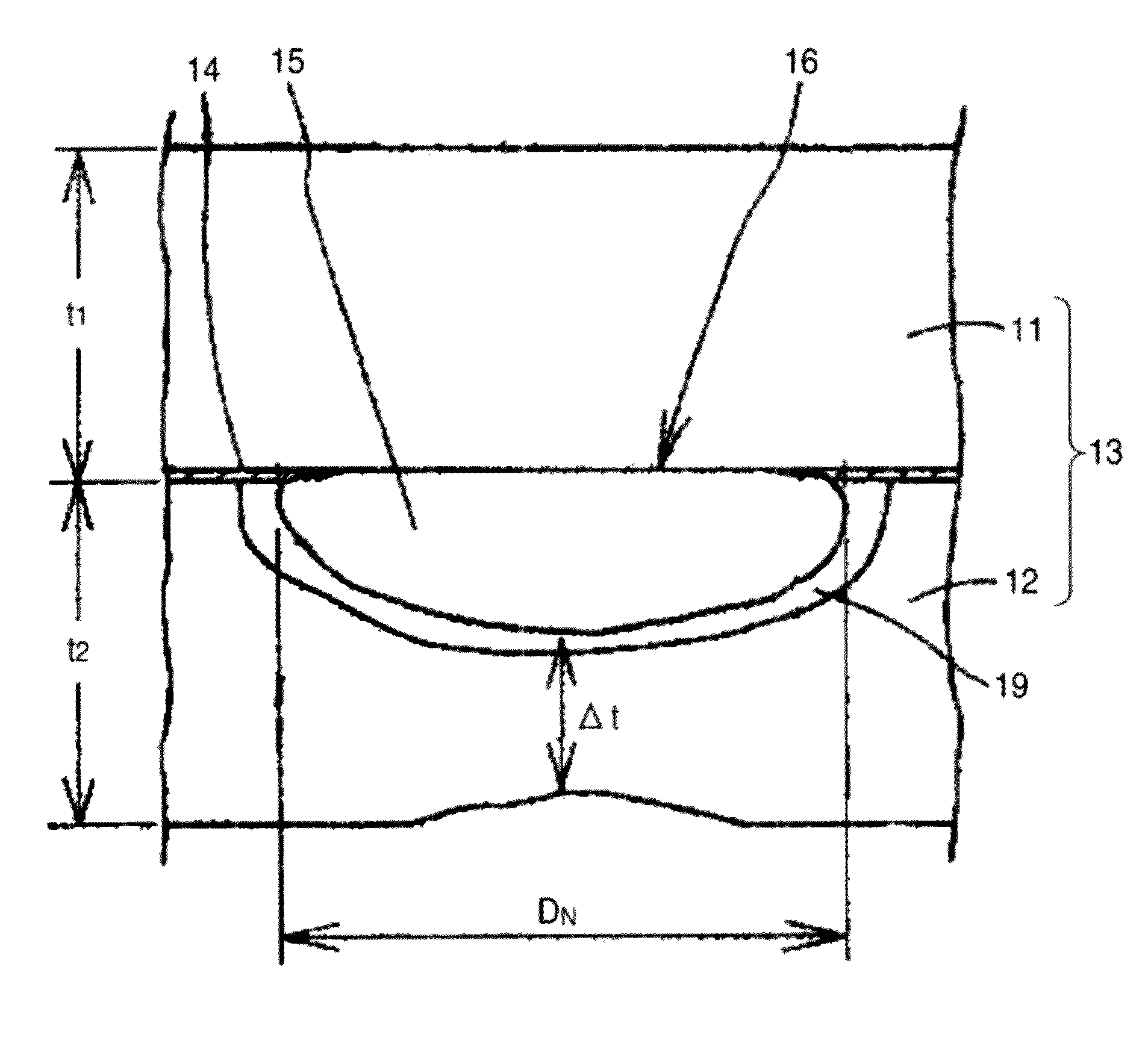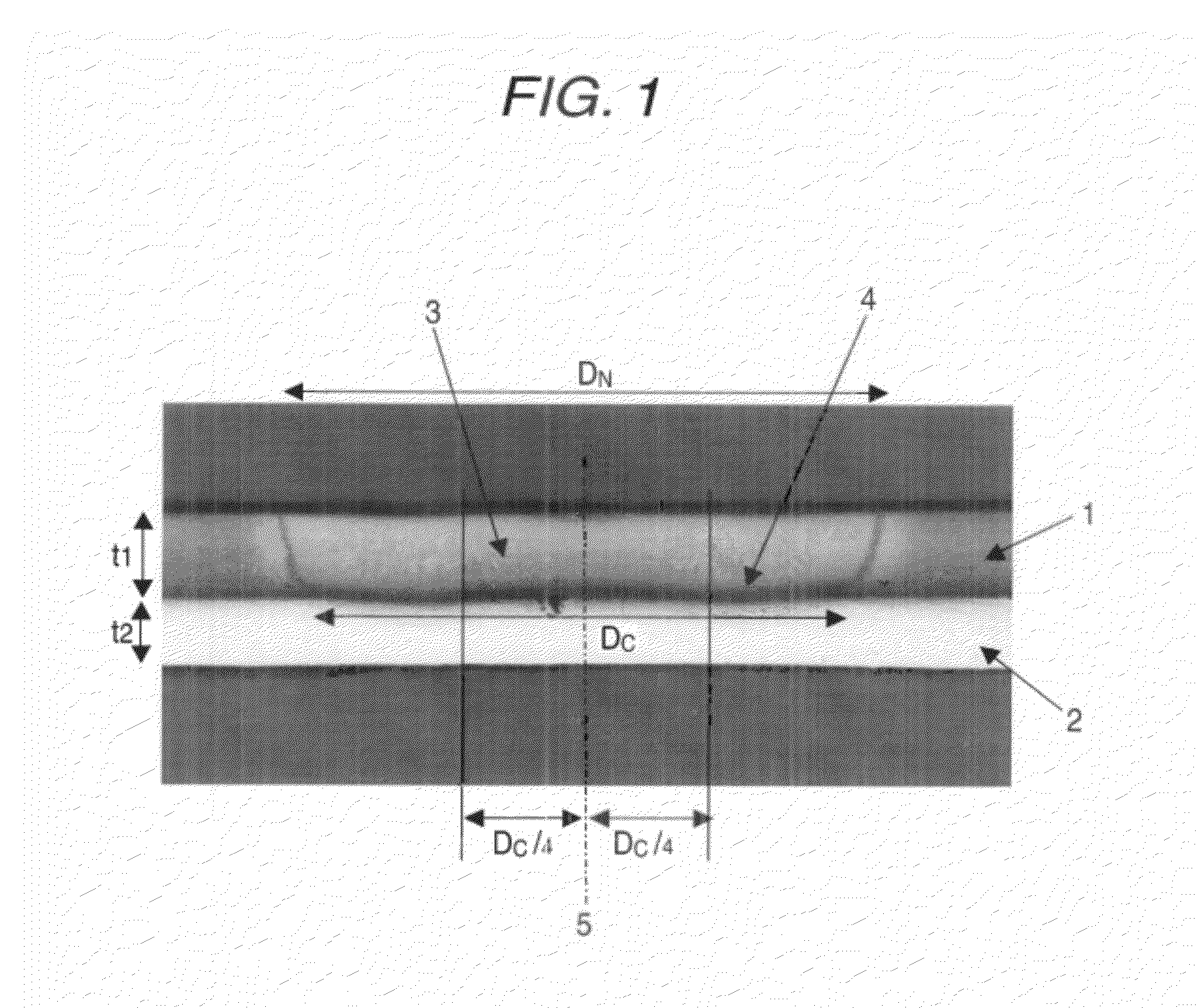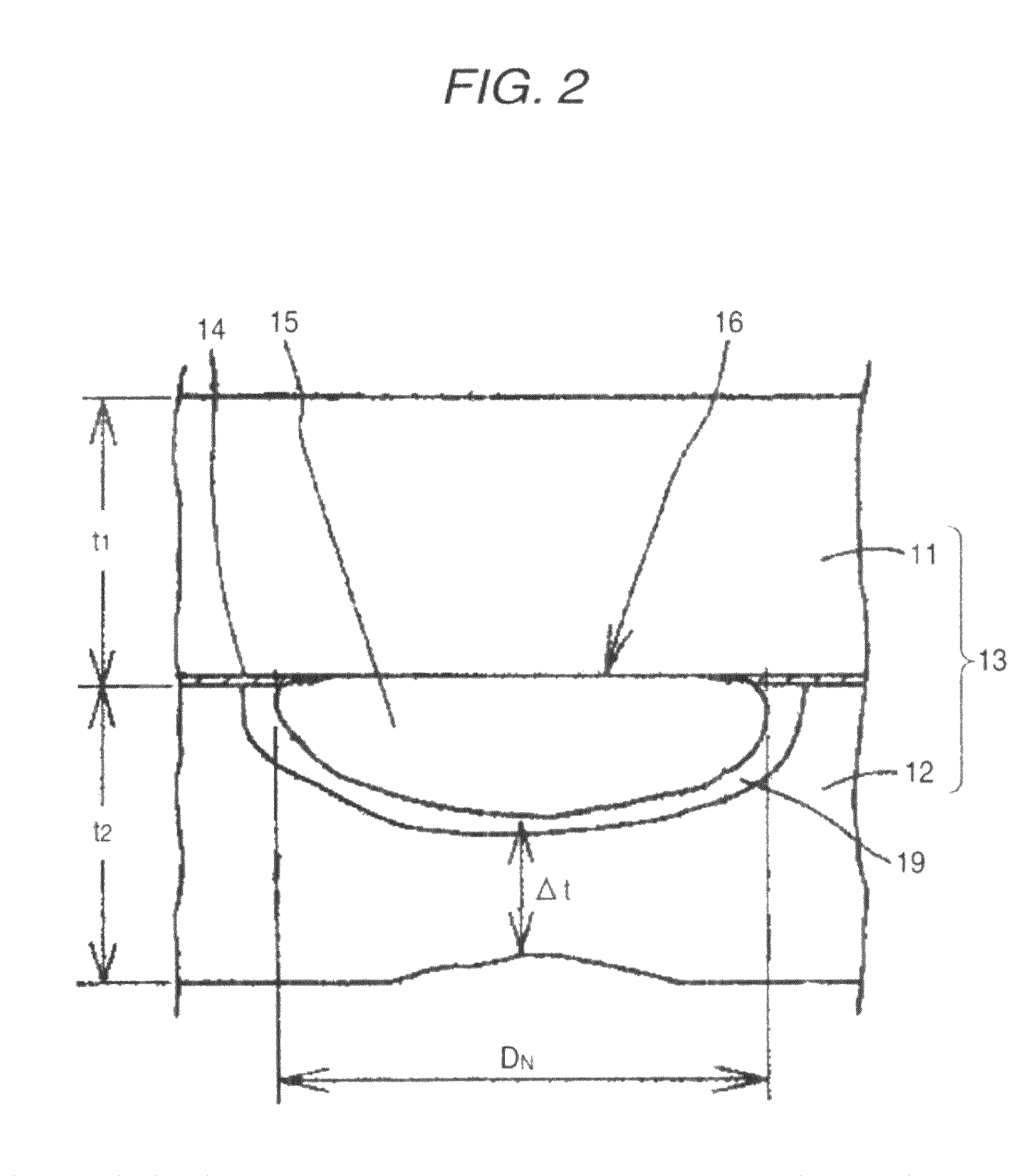Joint product between steel product and aluminum material, spot welding method for the joint product, and electrode chip for use in the joint product
a technology for aluminum products and joint products, which is applied in the direction of manufacturing tools, transportation and packaging, other manufacturing equipment/tools, etc., can solve the problems of high welding cost, difficult to obtain a reliably high strength joint part, and increase the welding cost, so as to reduce the cost, enhance the bonding strength of the dissimilar material joint product, and achieve the effect of high bonding strength
- Summary
- Abstract
- Description
- Claims
- Application Information
AI Technical Summary
Benefits of technology
Problems solved by technology
Method used
Image
Examples
examples
[0425]
TABLE 9Component of Steel Product(mass %, balance: Fe)Kind of Steel ProductCSiMnPSHigh-tension steel of 270 MPa20ppm0.010.140.0160.008gradeHigh-tension steel of 590 MPa0.0670.011.800.0080.003gradeHigh-tension steel of 780 MPa0.110.012.010.0110.003gradeHigh-tension steel of 980 MPa0.130.012.300.0100.002grade
[0426]
TABLE 10Components of Compound (at %)Kind of CompoundFeAlZnAl5Fe2-Based compound24.0 to 29.070.0 to 74.0—Al3Fe-Based compound18.0 to 24.074.5 to 81.0—Fe3Zn7-Based compound31.0 to 40.0—60.0 to 69.0
[0427]
TABLE 11(High-Tension GA Steel Sheet of 980 MPa Grade)Spot Welding conditionsSheetWelding PressureWelding PressureSheetThickness(kN), Welding(kN), WeldingNumber ofThickness t1t2Current (kA) andCurrent (kA) andGalvanizationSteelof SteelofSheetWelding TimeWelding TimeTip DiameterFilm ThicknessProductsProductAluminumThickness(msec) in(msec) inof ElectrodeMark(μm)Stacked(mm)(mm)Ratio t1 / t2First Welding StepSecond Welding StepChipRemarks1none11.21.01.23 kN-24 kA-200 msec—150R...
PUM
| Property | Measurement | Unit |
|---|---|---|
| temperature | aaaaa | aaaaa |
| diameter | aaaaa | aaaaa |
| diameter | aaaaa | aaaaa |
Abstract
Description
Claims
Application Information
 Login to View More
Login to View More - R&D
- Intellectual Property
- Life Sciences
- Materials
- Tech Scout
- Unparalleled Data Quality
- Higher Quality Content
- 60% Fewer Hallucinations
Browse by: Latest US Patents, China's latest patents, Technical Efficacy Thesaurus, Application Domain, Technology Topic, Popular Technical Reports.
© 2025 PatSnap. All rights reserved.Legal|Privacy policy|Modern Slavery Act Transparency Statement|Sitemap|About US| Contact US: help@patsnap.com



